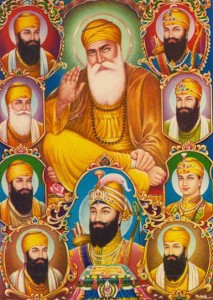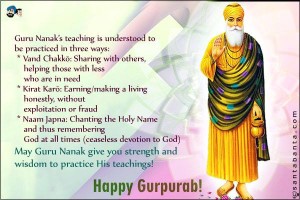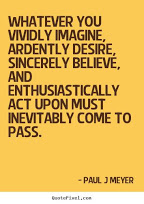The word “Guru” is derived from the root words “Gu”, which means darkness or ignorance, and “Ru”, which means light or knowledge The Guru is the one who guides us in our journey from darkness to light. The Guru is the experience of Truth (God).
I had always known about the ten Sikh Gurus, the first of whom was Guru Nanak, and the last Guru Gobind Singh. It was only recently, when I read the book “The Lives And Teachings of The Sikh Gurus”, by Harsh Dhillon, that I learned that there are not ten, but eleven Sikh Gurus, ten human and one eternal. The eleventh and eternal Guru of the Sikh religion is Sri Guru Granth Sahib.
I share this note on the eve of on Guru Nanak Jayanti, as an expression of the faith and belief in God that I have been blessed with after reading about the lives and teachings of the Sikh Gurus.
The story of the Sikh Gurus, is that of compassion, selfless service, valour and incomparable noble sacrifices. Each one of the ten human Gurus represents a divine attribute:

Guru Nanak – Humility
Guru Angad Dev- Obedience
Guru Amar Das — Equality
Guru Ram Das – Service
Guru Arjan Dev – Self-Sacrifice
Guru Hargobind – Justice
Guru Har Rai – Mercy
Guru Harkrishan – Purity
Guru Tegh Bahadur – Tranquillity
Guru Gobind Singh – Royal Courage
The history and the significance of the eleventh Guru, Sri Guru Granth Sahib is explained in the following text.
The first holy book of the Sikhs, now known as the Adi Granth, was complied on the behest of Guru Arjan Dev, the fifth Guru as an authentic collection of all the teachings and hymns composed by the first five Gurus. The hymns written in the Gurumukhi script, were composed for singing by the Sangat (religious gathering) and each Guru had indicated the Raag (musical tone) in which the composition was to be sung. The hymns in each Raag group were arranged in the chronological order of the Gurus. At the end of the book Guru Arjan Dev included the compositions of Hindu and Muslim saints such as Kabir, Ravidas, Namdev, Farid and others. The Granth was installed with great ceremony in the HarMandir Sahib, the holiest Sikh temple located in Amritsar. Later, Guru Gobind Singh, the tenth Guru, made the last addition to the Granth, including the 115 hymns written by Guru Tegh Bahadur.
Change of leadership always creates conflicts and disagreements. To avoid these wrangles and rivalries in the future, Guru Gobind Singh decided that after him there would be no Guru in flesh and blood. The tenth Guru announced, “Sabh Sikham kau hokum hai, Guru manyo Granth” (“We command all Sikhs to hold the Granth to be the Guru”). The holy book then became known as the Sri Guru Granth Sahib.

The Guru’s followers came to him to seek guidance in matters of religion and spirituality, and for advice regarding their day to day problems. All the teachings that the Sikhs needed would be got from the Granth which must be regarded as the permanent Guru; an unchangeable point on which they could focus their devotion and from which they could gain spiritual strength. For the day to day matters, the Sikhs could take help from the elected members of the community, known as the panth (panchayat). Guru Gobind Singh said, “Where there are five, there am I, where the five meet they are the holiest of the holy.”
For Sikhs, “Sri Guru Granth Sahib” is the living embodiment of the Guru, and is regarded with the utmost reverence and respect wherever it is found. The Sikhs bow to the Granth when they come into its presence. The sacred verses of Sri Guru Granth Sahib are called Gurbani. In all gurdwaras (place of religious worship of the Sikhs) and many Sikh homes, the Granth is read every day. No Sikh ceremony is regarded as complete unless it is performed in the presence of the Guru Granth Sahib. On a daily basis, Sikhs receive a hukam or divine order in the form of a hymn from the Guru Granth Sahib, either in a Gurdwara or at home. The hukam is the first hymn of the holy book from the left hand page when it is opened at random. Similarly, at the end of a service, after the ardas (Sikh prayer), the Adi Granth is opened at random and a portion is read. Many Sikhs do this daily, regarding the verses as words from God which they will find helpful during the day. This is called vak lao, taking advice.
On special occasions, the Granth Sahib is recited non-stop from cover to cover by a string of readers. This continuous reading of the Guru Granth Sahib is known as an akhand path. It is regarded as the highest and the noblest ceremony in the Sikh religion, and can be performed on any important occasion. It requires nearly 48 hours completing the continuous reading. A saptahak path is a daily reading of Guru Granth Sahib to be completed in seven days. It is sometimes undertaken in private homes as a mark of supplication on special occasions. A sehaj path is a reading of Guru Granth Sahib that can be completed at any length of period beyond seven days.
Guru Granth Sahib remains as a permanent unchangeable guide for all Sikhs as a living Guru or Teacher. It is a representation of the undaunted strength of the Sikh community. Guru Arjan Dev preferred a martyr’s death to saving his life through making alterations in the hymns as required by Emperor Jahangir. Anyone can open the pages of the Guru Granth Sahib and find strength and guidance through His Word: “The Guru is now always with me” (Guru Arjan, Raag Asa)
Written and Compiled by – Jayesh R. Tekchandaney, tekchandaney@gmail.com
Sources and Acknowledgements
“The Lives And Teachings of The Sikh Gurus”, by Harsh Dhillon
Introduction to Sikhism, http://fateh.sikhnet.com/s/SikhIntro
Sri Guru Granth Sahib, http://www.sikhismguide.org/granth.aspx



